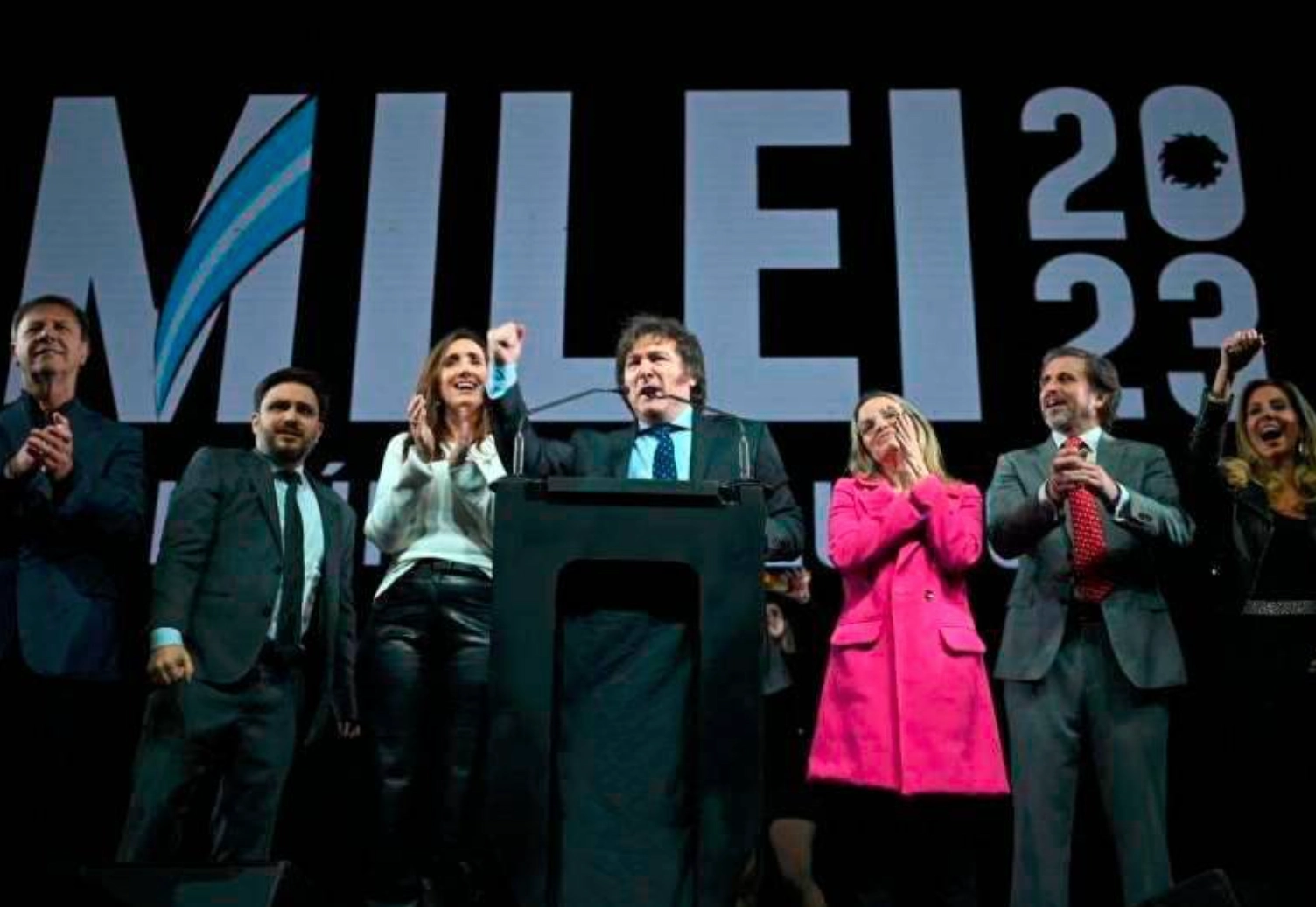To paraphrase Karl Marx, a ghost has been haunting Argentina, that of anarcho-capitalism. Against all odds, the presidential pre-candidate (now candidate) of the group Liberty Advances (LLA), Javier Milei, obtained more than seven million votes, which represents 30% of the votes that made him the most voted candidate in the primary elections. LLA has also won 16 of the 24 electoral districts throughout the country.
What happened in the PASO (Open, Simultaneous and Obligatory Primaries)?
The triumph of the Liberty Advances leader could be explained by five main factors. The first is related to the regional context; the second is to the mid-life crisis that Argentine democracy is going through; the third is to the often surprising character that has characterized Argentine politics since 1983; the fourth is to the wasted opportunity of Juntos por el Cambio and, finally, to the proposals presented by Milei.
Regarding the first factor, the region has been a testing ground for the emergence of radical right-wing leaders with different levels of electoral success, from those who came to power like Donald Trump in the United States, Jair Bolsonaro in Brazil or Nayib Bukele in El Salvador, to highly competitive candidates who were defeated in the second round like Rodolfo Hernández in Colombia or José Antonio Kast in Chile.
Regarding the second aspect, the long cycle of 40 years of uninterrupted democracy exposes us to a very modest balance in terms of the satisfaction of social expectations. This has been a process of few achievements (a resilient democracy and a growing civil rights agenda) and many frustrations in relation to the non-fulfillment of multiple demands. The hopes raised by Raúl Alfonsín’s 1983 campaign slogan “With democracy we can eat, cure and educate” have not been fulfilled. In any case, it is convenient to differentiate the democratic regime from the failure of its managers throughout these four decades.
The third factor that explains Milei’s rise is the country’s vast experience in terms of the emergence of politicians, undetected by the radar of traditional politics, but who quickly managed to become national political referents. There are the cases of Raúl Alfonsín, Carlos Menem, Néstor Kirchner, Mauricio Macri, and Alberto Fernández. The exceptions have been Fernando de la Rúa and Cristina Fernández. The Black Swan has been whitewashed in Argentina.
The fourth aspect is that the opposition of Together for Change Party (JxC), the winner in the legislative elections of 2021, has carried out a very disputed internal process that has probably prevented it from convincing a significant part of society of its condition as an electoral alternative. Javier Milei occupied that space. If the manual still works, it is to be expected that the resolution of the internal process in favor of Patricia Bullrich will allow JxC not only to organize its space but also to recover its capacity to make society “fall in love”.
Finally, the pre-candidate Milei presented to society a set of proposals, some of them very polemic, such as the sale of organs, and others hardly practicable, although not impossible in Argentina, such as the closing of the Central Bank or dollarization. All this, in the midst of a campaign tinged by the deterioration of the public debate and the absence of proposals.
After the PASO elections, we are facing a situation of three-thirds: Cristina Fernández, LLA, JxC, and Union for the Fatherland (UP) in this order.
What lessons can we draw from previous experiences of electoral fragmentation in Argentina? During the last experiences, the result was the triumph of the candidate with the second-highest number of votes, not the one with the highest number of votes. The winners were Néstor Kirchner in 2003 (at that time without PASO) and Mauricio Macri in 2015 (already with PASO) against Carlos Menem and Daniel Scioli, respectively.
The question would be: no two without three or the third time is the winner?
*Translated from Spanish by Janaína Ruviaro da Silva











